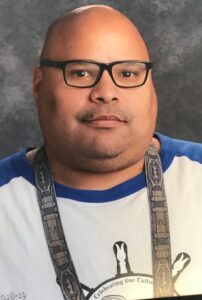DEI: Doing The Right Thing
We recently interviewed a member of our leadership team, Francisco “Cisco” Mercado, about his involvement in moving forward our organization’s Diversity, Equity, and Inclusion (DEI) efforts.
Camp Fire Alaska’s efforts began a number of years ago, when we changed the name of one of our camps after learning that it actually had negative connotations and was ignorant of the culture from which it came. As we continue on the journey to make our programs more equitable and culturally aware, Cisco has taken leadership in that area.
During his ten years at Camp Fire, Cisco has made a huge impact on the youth by working in some of the most diverse schools in Anchorage, and we are happy to have his voice and leadership at Camp Fire.

Q: Why are you passionate about DEI work and bringing that knowledge to our org?
A: I am passionate about DEI work because of my previous experiences of racism and discrimination. Early on in my career, I was discriminated against because I was Puerto Rican—I was not the “right type” of Latino. During this experience, I had nobody to support me or defend my rights. Afterwards, I vowed that I would never let that happen to me again. Since coming to Camp Fire, I have always been an advocate for myself. Since starting as a program leader, I have become a regional supervisor and I want my staff to know their rights, but also, what it means to be in an inclusive work environment. I want to be an agent of change.
Q: What are the positive impacts of focusing on DEI within the org that you see, both in the short-term and long-term?
A: In the short-term, DEI has a couple of major impacts. Firstly, DEI can bring to light issues within an organization. Once an organization is committed to DEI work, you are going to find pockets of racism or troubling behavior, whether it is conscious or subconscious. When you find these pockets, you can formally address them and start to change the culture of your organization. Secondly, you can create a workspace where your minority staff feel understood and supported. By creating a safe space and positive environment for everyone, people will naturally be more committed to the organization, there will be a decrease in turnover amongst your employees and you will be seen as beacon of light in the community in the long-term. Presenting this culture consistently, both internally and externally, will lead to increased diversity of applicants, which is always positive for maintaining inclusive and equitable spaces.
Q: What are you most excited about that is on the horizon or a goal you have for 2021 in regard to making our org more equitable?
A: We have a real opportunity to transform the culture and agency to reflect DEI practices and we can be a leader in this field. One of the goals I have for this agency is to continue the path of hiring more minority candidates in positions of leadership in order to have a broader view of the world and different voices at the table when it comes to making organizational decisions.
Q: Why do you find anti-racism work to be so important in youth development?
A: I do not want my nieces, nephews, and the kids I work with to be fighting the same battles that I have had to fight. Anti-racism work is vital in the field of youth development because youth need to know that they can be agents of change. I want them to learn how to speak up and fight racism wherever it appears in their life. I also want them to learn about the sacrifice that thousands of people are making every day so that they can live in a society where we are all starting at the same start line, where we judge someone on their abilities, character, and morals. A society where we have equal opportunities. A society where I am seen as a human being first, and not immediately perceived as a criminal because of racist stereotypes.
Q: In your opinion, what do you think adults can do to make sure they are making positive impacts on their children and kids in their lives?
A: In my opinion, every child needs to know that they are loved and cared for. Every child should, at least once a day, hear from a caring adult that they are special and that they are heard. As a caring adult, one of my jobs is to put a smile on the face of at least one kid each day. Every day, I am having positive conversations with the youths in our program. I am showing them that I care about what is going on in their lives. As I have been with Camp Fire for ten years now, I constantly run into my former Camp Fire youths. They come up to me, give me a hug, and proceed to tell me what is going on in their lives (good and bad). As they are telling me their story, I am listening with a smile on my face because I know I had an impact on their life. It is a wonderful feeling. At the end of the day, I am an advocate for the youth in my care.
